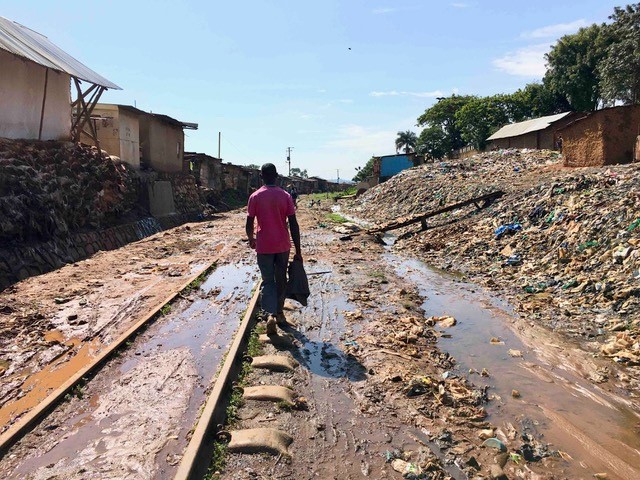
Abstract
Kampala has a complex set of regulations describing actors, rules and procedures for collection and transportation of waste, and requires waste to be disposed of at the landfill. Yet little of the city’s waste moves through this “formal system”. Building on wider scholarship on urban infrastructure and calls to theorize from southern cities, we examine recycling in Kampala as a heterogeneous infrastructure configuration. Kampala’s lively recycling sector is socially and materially diverse: it is comprised of entrepreneurs, publicprivate partnerships and non-governmental organizations, as well as a range of materials with different properties and value. We articulate how actors assert claims, obtain permissions, build and maintain relationships as they rework flows away from the landfill. We argue that recognizing sociomaterial heterogeneity throughout the waste configuration enables a clearer analysis of contested processes of claiming value from waste. We also demonstrate how these efforts have pressured the state to reconsider the merits of the modern infrastructure ideal as a model for what (good) infrastructure is and ought to be. Various actors assert more heterogeneous alternatives, raising the possibility of alternative modes of infrastructure which might generate better incomes and improve service provision.
This article is a part of the Heterogenous Infrastructure Configurations in Uganda (HICCUP) project, funded by the Swedish Research Council.
Henrik is a long time research fellow of the Environmental Humanities Laboratory and the Division. He is a political ecologist, lecturer at the University of Manchester, world wide resident, honorary associate professor of the University of Cape Town, a postcolonial urbanist and a filmmaker to mention only a few things on a long list of engagements. Keep up with Henrik on Twitter: https://twitter.com/rhizomia
Links
Claiming value in a heterogeneous solid waste configuration in Kampala (open access)

